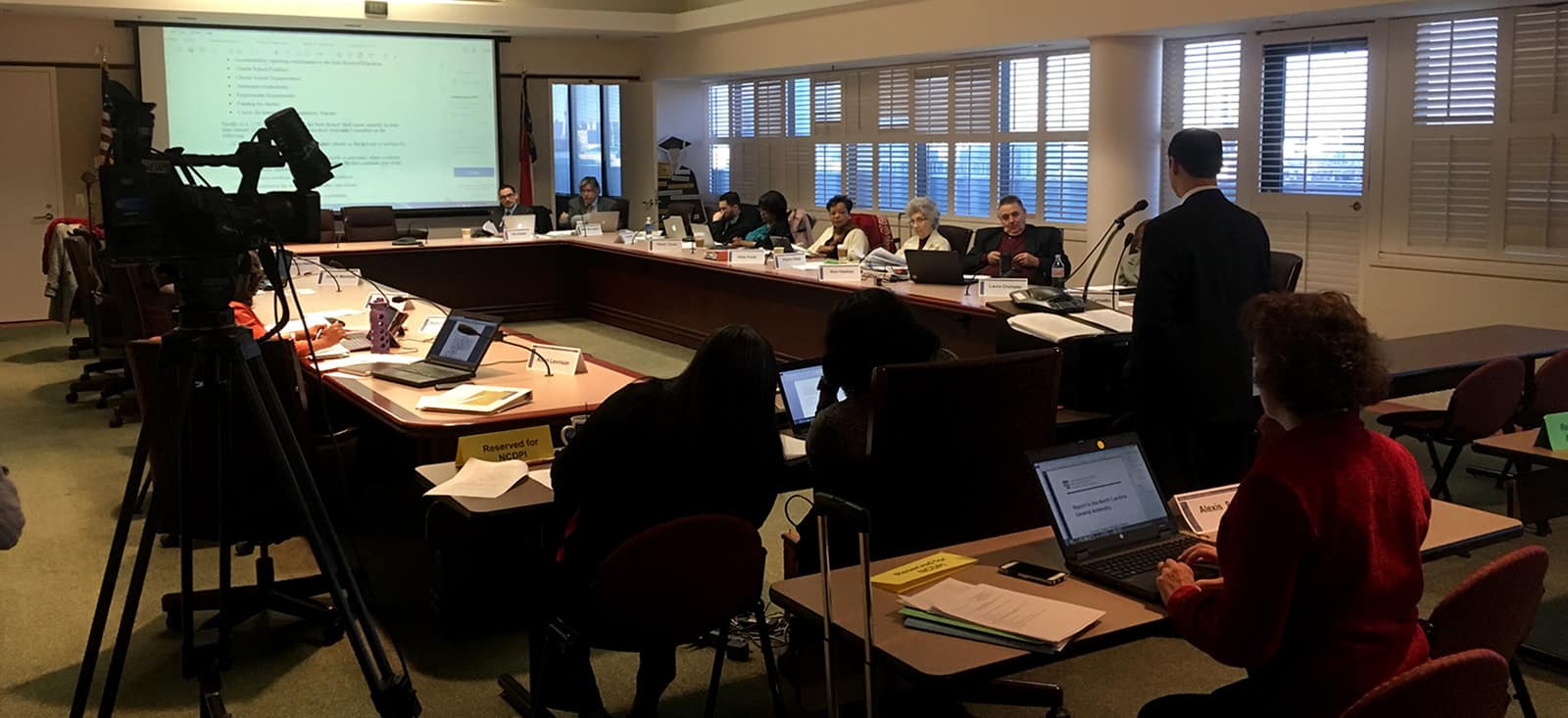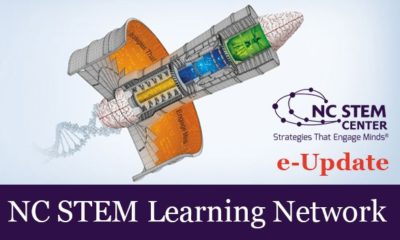Workload and personnel vacancies are to blame for the fact that a charter school report to the General Assembly bypassed the Charter School Advisory Board, according to an official in charge of the report.
In his opening presentation to the Board Monday, Interim Director of the Office of Charter Schools, Adam Levinson, noted the annual report to the General Assembly’s Joint Education Legislative Oversight Committee had been required by state statute since 1996 and is due by the middle of January.
“Typically, we would have briefed you and delivered this report to the State Board for discussion in December. That was our intent, so they could act in January,” Levinson told the Advisory Board.
Levinson then went on to explain that the Office of Charter Schools was operating with five consultants, three unfilled vacancies, an interim director, and a sole administrative assistant while trying to manage the day-to-day demands of the office, including applications, renewals, and school closures, just to name a few, as well as reporting to two state-level public boards.
“I say all this not to complain and certainly not to make excuses,” said Levinson. “But simply to make clear that at no time has anyone intended to withhold or rush through this report. We’ve simply done our best to meet this requirement among many requirements given our resource limitations.”
The report received significant media attention last week when Lt. Gov. Dan Forest expressed concern about what he considered to be the negative tone of the report at the monthly meeting of the State Board of Education.
That body eventually decided to postpone its final vote on the report and requested it go back to the Charter School Advisory Board for review.
Levinson told the Board that if the report had moved forward to a vote at the State Board meeting, he would have recommended the report be “approved subject to technical corrections,” something that allows the Office to finalize a draft report.
“We now have a little more time and latitude to get to that polished final product,” Levinson said. “Which I think is a good thing.”
When discussing the contents of the report, Levinson described it as a “… straightforward, somewhat dry, report…” after noting that this year’s report had probably been read more times than the previous five annual reports combined.
“It was certainly not intended to be an advocacy piece nor a critique,” said Levinson. “Just data and basic descriptive background information; updates about law, policy, and agency functions.”
Levinson said the ultimate goal of the report is to assist policymakers in providing a sound, basic education.
Levinson then opened the discussion to questions and comments from the Advisory Board.
A significant point of concern among several Advisory Board members was the accuracy of data regarding economically disadvantaged students at charter schools.
Mike McLaughlin, a non-voting member of the Board who represents the state Superintendent, noted that the Department of Public Instruction had a process in place to verify data and obtain data from charter schools not participating in the school lunch program, the primary way the department measures economic need.
“Ultimately, these data are as accurate as we can make them,” said McLaughlin. “I just wanted to reassure the Board and the public about that.”
Board Chair Alex Quigley noted that schools not participating in the school lunch program could not access the direct certification system, which allows schools to determine income level.
Board Member Joseph Maimone said those schools should have access.
“For at least 10 years, I have been very vocal requesting access to that system for schools that don’t participate, because it is a means for schools to get the data without forcing families to provide W-2 forms and private information about their finances that they are not always willing to share,” Maimone said. “And that has really skewed, I believe, a great number of charter schools’ disadvantaged percentage numbers, and simple access to that system would make these numbers look very different.”
Board member Alan Hawkes gave the example of a charter school in Guilford County that does not participate in the school lunch program but whose booster club provides lunch to any student who needs it.
“That is being underreported, that demographic in our schools” said Hawkes.
McLaughlin noted that DPI had a survey form that charter schools are suppose to distribute to parents to collect those numbers.
“The key point, as a Board, I think we should impress upon charter school leaders is the data that you report to DPI is very important,” said Quigley later. “It’s important for you to have accurate data for your schools, for you to disaggregate that data effectively so you can make sound instructional decisions, it’s also important as an aggregate when it comes together to provide data for policymakers who make decisions based on this data.”
But Quigley agreed that access to the direct certification system was important for those schools not participating in the school lunch program.
The Board concluded the discussion with suggestions on updating the report, such as including national recognitions received by charters in the state. The Board recommended including data on waitlisted students as well.



